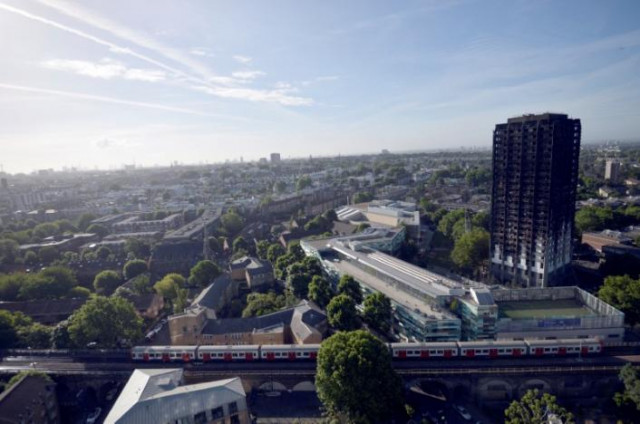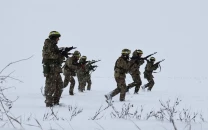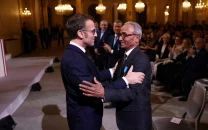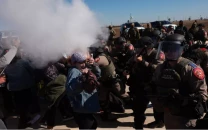Survivors traumatised six months after London tower blaze
208 households have found a permanent home, but there are still 123 others living in emergency accommodation

PHOTO: REUTERS
At the end of November, 208 households have found a permanent home, but there are still 123 others living in emergency accommodation, the majority in a hotel.
"You said this is history -- this has not been history for me, I've lived this every day for the last six months," said a young woman, trembling, during a meeting organised by the authorities on Tuesday.
Her mother lived on the 23rd floor of the building in west London, but was not at home when the blaze struck on the night of June 14.
British police suspect Grenfell Tower council committed corporate manslaughter
Seventy people were killed in the fire, including a number of children, while a stillborn baby was additionally recorded by police as a victim.
"My mum is going to be 67 and she is still in a hotel -- she has been in a hotel for six months," the woman said, criticising a "lack of empathy" from authorities.
With Christmas approaching, the director of the Justice4Grenfell Association, Judy Bolton, is worried about the families who fled the flames. "Has anybody thought about the impact on those in hotels facing Christmas in one room with children, not being able to cook a Christmas dinner, to sit around the table?" she said.
"What have you put in place to ensure that these people don't feel isolated, don't feel left apart, don't feel ignored?" Bolton asked.
Mary Weale, responsible for communities within Grenfell's borough of Kensington and Chelsea, acknowledged that the festive season "is often a time of heightened stress, anxiety and depression".
"As Christmas approaches we have to be particularly concerned about suicide risks", she said, explaining the council aimed "to identify people at risk and focus on them".
Weale described mental heath as an "enormous issue", recognising that survivors will need support for years to come. Some survivors argue they have not received the help they need.
"My mum gave birth to me in that tower, on that 10th floor," said Ishmael Francis-Murray, who said he hasn't received any assistance.
"My kids are not sleeping", he added, while the blackened tower block looms over the neighbourhood as a constant reminder of the deadly blaze.
The streets are covered with small yellow ribbons, teddy bears and tokens of affection left for the victims, alongside the words 'truth' and 'justice' which hint at the widespread mistrust of the authorities.
Some people believe that the police underestimated the death toll, announced last month after an unprecedented search operation, arguing that it did not fully take into account people living in the tower illegally.
A public inquiry being led by a retired judge has also been challenged. A petition calling on Prime Minister Theresa May to "build public trust" in the inquiry has gained more than 15,000 signatures, including the support of singer Adele.
The aftermath of the fire has seen numerous marches to remember the victims and another will take place on Thursday, the six-month anniversary, in addition to a service at St Paul's Cathedral.
Vassiliki Stavrou-Loraine, 66, lived opposite Grenfell Tower and knew many of the victims after 35 years in the neighbourhood.
British PM May faces mounting criticism over London tower block blaze
She said she has suffered health problems from the smoke and dust which hung over the neighbourhood for days after the fire.
"I felt very dry in the mouth, my eyes were very sore. I had nausea, pain in the stomach, headaches... A lot of people complain," she told AFP.
"We don't know what the long terms effects will be."
Beyond the physical health issues, the pensioner remains traumatised by witnessing the fire engulf the 24-storey block.
"We heard the children screaming, asking desperately for help and then it stopped. It was the worst moment of my life," she said.



















COMMENTS
Comments are moderated and generally will be posted if they are on-topic and not abusive.
For more information, please see our Comments FAQ